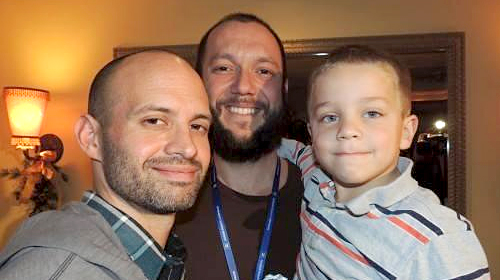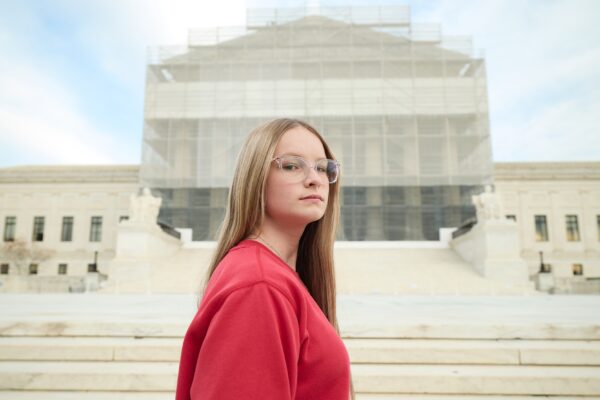
Today, the ACLU filed a lawsuit against Utah to force the state to continue recognizing the marriages of more than 1,000 same-sex couples who were legally married in the weeks after a federal court struck down Utah’s bans on allowing same-sex couples to marry. From the moment the federal court in Kitchen v. Herbert issued its decision on December 20, 2013, to the moment the Supreme Court issued a stay of the ruling on January 6, 2014 while the case is appealed, there was an outpouring of same-sex couples across the state who were finally able to express their love and commitment to each other through marriage and to protect their families through the protections and responsibilities that flow from being legally married.
After the Supreme Court stayed enforcement of the district court’s decision Utah’s governor has issued a directive ordering all state agencies to put the recognition of those marriages “on hold.” By terminating recognition of their marriages, the Governor’s directive effectively divorced over 1,000 couples in the eyes of the state, throwing their lives into disarray.
“We’re back at square one, with no idea what’s going to happen to us if one of us is hospitalized,” says Stacia. Her wife JoNell was treated much better when accompanying her during an emergency room visit after they were married than she was the time medical staff ignored and excluded JoNell during a previous hospitalization three years ago. “After 13 years together, we just want the security and peace of mind to know we can be there for each other in the hard times.”
Another couple, Matt and Tony, adopted their son, Jesse, four years ago, but because Utah does not allow unmarried couples to jointly adopt, Matt is the only one recognized as a legal parent and Tony is treated as a legal stranger under Utah law. Once they got married, Matt and Tony began adoption proceedings so that Tony could also be recognized as a legal parent. But those adoption proceedings have now thrown up in the air after the Governor’s order to put recognition of their marriage “on hold.”
By legally marrying, these couples and their families immediately acquired vested rights that Utah cannot take away. We filed our lawsuit in state court arguing that by retroactively stripping these marriages of recognition, Utah has violated the Due Process clauses of the Utah and United States Constitution, which prohibit the government from applying laws retroactively to destroy vested rights that have already accrued. Our lawsuit doesn’t argue that Utah’s marriage bans are unconstitutional – that constitutional challenge is playing out in Kitchen in the federal court of appeals and potentially the U.S. Supreme Court. But whether Utah’s marriage bans are ultimately struck down or upheld, the marriages that have already took place must continue to be recognized.
When the Supreme Court stayed enforcement of the district court’s decision in Kitchen, it allowed Utah to resume enforcing its marriage bans while the case is on appeal. As a result, Utah does not have to allow any other same-sex couple to marry or recognize the marriages of any new same-sex couples as long as the stay is in force. But that does not authorize Utah to retroactively take away recognition from the marriages that have already occurred. In fact, before the Governor issued his directive, we wrote to the Attorney General to point out that this precise issue was addressed by the California Supreme Court when 18,000 same-sex couples married before the voters passed Proposition 8 in 2008, which declared that “Only marriage between a man and a woman is valid or recognized in California.” The California Supreme Court rejected the argument that the new constitutional amendment authorized the state to stop recognizing the 18,000 pre-existing marriages. Instead the court held that Proposition 8 could only be applied prospectively to new marriages in order to ensure that it did not affect the vested rights of couples who are already married.
But the heart of the matter is perhaps summed up best by plaintiffs Marina and Elenor, both born and raised in Utah:
“We want to be married to strengthen and protect our bond and commitment to one another, especially to be able to create a safe environment to raise a child (or maybe two). And we don’t want to have to leave Utah to do that. Our lives are here, our friends are here, our jobs are here, and we love this city. This is our home. We love where we live. We want to raise a family here.”
Tell Governor Herbert to recognize all same-sex marriages, and learn more about same-sex marriage and other civil liberty issues: Sign up for breaking news alerts, follow us on Twitter, and like us on Facebook.


